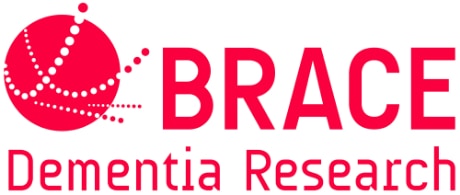My Story: Mum and Me
"My mum was a true lifelong learner. To her, reading novels was a waste of time when there was so much to read and learn about in the real world. From her university studies in Archaeology, Spanish and French, to retraining in early years education when my brothers and I were young, to endless night classes in the evening after a hard day at work running a nursery school, she never missed an opportunity to learn.
As an older adult, kids flown the nest and partner-free, she took up golf and yoga, became an Indian Head Massage Practitioner, joined the local ramblers, tried painting classes (with varying results!), loved catching the latest arty films in her local independent cinema, and adored annual Archaeology Society trips across the UK and Europe. On top of that, she was an active member of the St Vincent De Paul Society, a charity dedicated to tackling poverty in all its forms by providing practical assistance to people in need.
With a diagnosis of Alzheimer’s in her early 70s, living alone in Ireland (with me, her daughter, living in Wales), life started to get tougher for her. The steady creep of symptoms stripped her confidence … forgetting people’s names, struggling with directions, losing track of time, noticing when people whispered about her. The doors shut on her full life and her light dimmed.
Purpose and dignity are things we all need and deserve in life, and Alzheimer’s too often strips those things away. As a distant carer for mum, my top priority was working out how to support her to have the enriching life experiences that she’s always loved. Working with her carers, they focused on trips out to new places and archaeological sites, and took photos to use as future memory prompts. Supported by the local further education college, mum continued to take night classes accompanied by carers. We’d look together, me prompting on the classes I knew she’d love. It wasn’t all straight forward – she fought her diagnosis and any support, so we wove a careful web of white lies to introduce carers under other guises, and quiet conversations with her class tutors paved the way for a seamless experience.
On regular trips to Ireland, front and centre was having fun and adventures. We’d pick up walking trail maps for local towns, travel by train (she’d had her driving licence revoked – a huge blow), stop for lunch, coffee and cake, and spend hours exploring. I developed much more patience and openness, but this took time. If mum wanted to chat for ages to a stranger, tut at things she disapproved of, jump at the clatter and bang of a noisy café, or go slow so that we missed the train, it really helped to stay relaxed.
We planned short holidays based around places she’d loved as a younger person, and around exhibitions and archaeological sites. Despite limited mobility, she’d insist on taking the most adventurous routes, and we spent one weekend laughing at our face plant in an Irish bog! As her ability to read the signs on exhibitions declined, we’d stand together and I’d quietly read aloud to her, enjoying the light in her eyes as she learned something interesting and new.
We took lots of photos of our adventures in those last years. As her memory continued to decline, we filled her yearly calendar with photo memories and made photo books for her to enjoy.
When mum died, of Alzheimer’s, aged 78, having the memories of what she could do in those last years, rather than what she couldn’t do was a huge comfort. She’s left a huge legacy in her wake – to keep your eyes open, seek adventure, and continue to learn through life. Thanks mum."
Share this page
